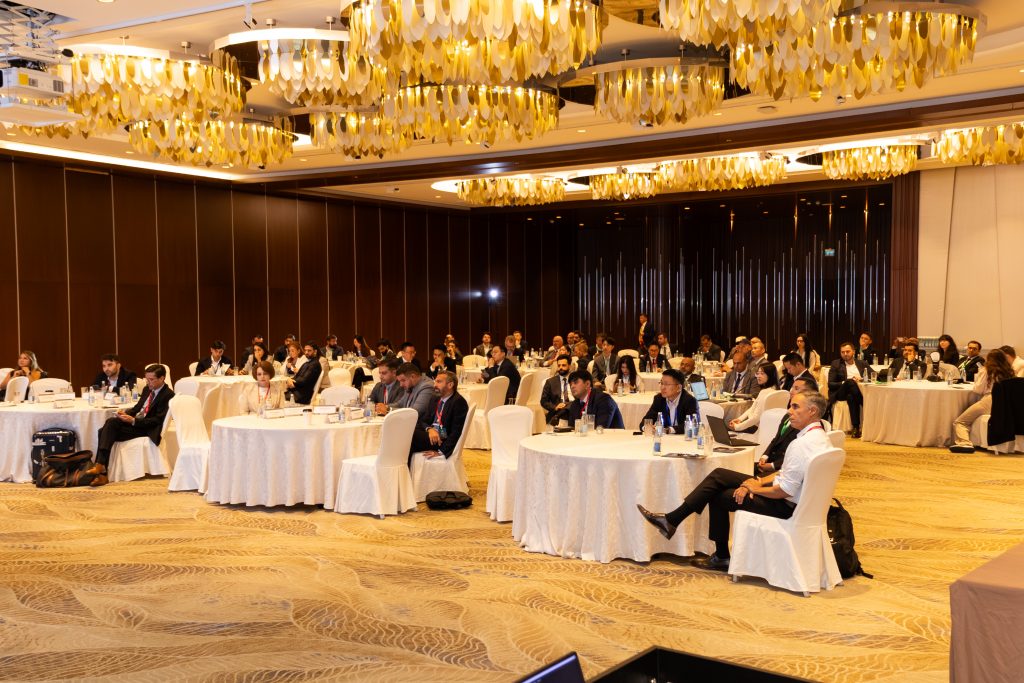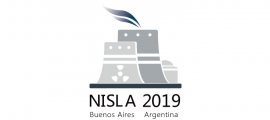Baku, Azerbaijan – September 26, 2025 – The Azerbaijan & Central Asia Green Energy Week 2025 successfully concluded today at the Baku Marriott Hotel Boulevard, bringing together energy leaders, policymakers, investors, and innovators from across the region and beyond to chart a collaborative path toward a sustainable, low-carbon future.
Over two dynamic days on September 25–26, the conference served as a pivotal platform for dialogue on advancing renewable energy deployment, energy efficiency, green hydrogen, and regional cooperation in Central Asia and the Caucasus. With a strong focus on practical solutions, policy frameworks, and investment opportunities, the event highlighted Azerbaijan’s growing leadership in the regional energy transition.
Driving the Energy Transition: Policy, Investment, and Innovation
The summit opened with a high-level Welcome Ceremony and keynote address on Azerbaijan’s National Energy Strategy Towards 2050, setting the stage for a forward-looking agenda. Kamala Asadova (EY), Vitaliy Yakovlev (KPMG Azerbaijan), and Fuad Bagirov (Azerbaijan Green Building Council) moderated panel discussions that underscored the importance of robust policy frameworks, public-private partnerships, and sustainable finance in accelerating decarbonization.
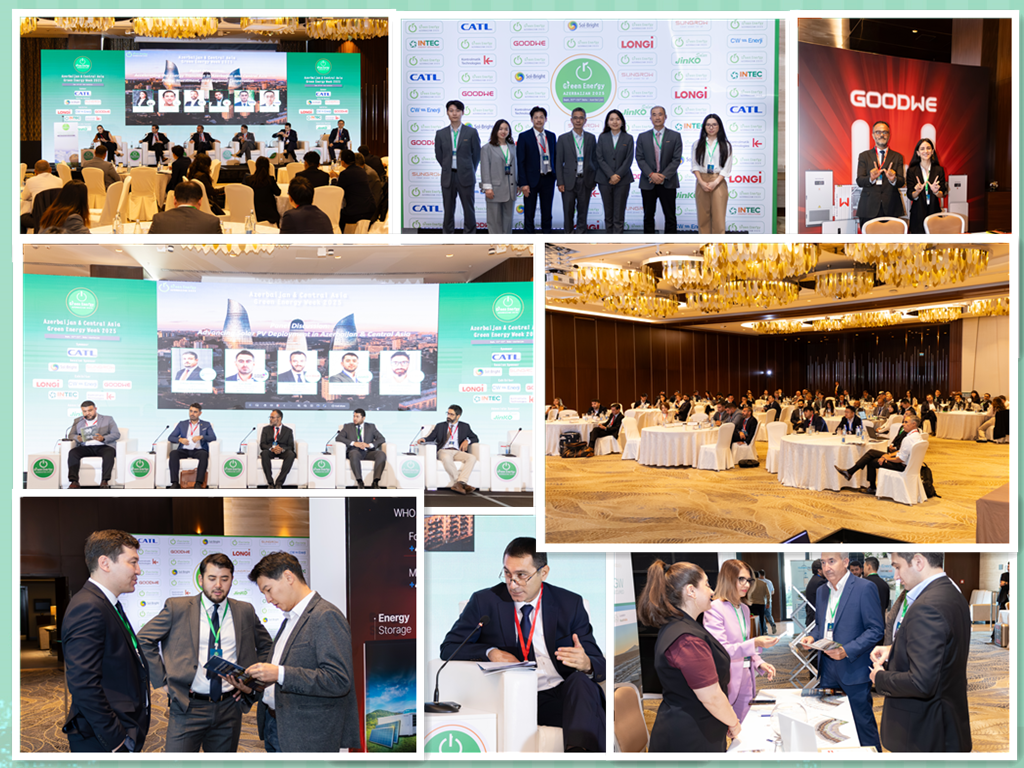
Highlights included discussions on Azerbaijan’s national energy strategy toward 2050, scaling up renewable projects, optimizing grid integration, and the growing role of green hydrogen in Central Asia and the Caucasus. The event also emphasized the importance of cross-border collaboration, sustainable finance, and building local capacity for a resilient and inclusive energy future.
With strong engagement from public and private sectors, the Green Energy Week served as a vital platform for fostering partnerships and advancing the region’s sustainable energy goals.
Key themes included:
- Scaling up solar, wind, and energy storage projects across Azerbaijan and Central Asia.
- The critical role of energy efficiency as a silent enabler of the energy transition.
- The prospects of green hydrogen as a strategic vector for economic diversification and clean energy exports.
Speakers from institutions such as the World Bank, IFC, EBRD, ADB, GIZ, and the European Union’s EU4Energy Program emphasized the need for regulatory harmonization, cross-border collaboration, and de-risking mechanisms to unlock private sector investment.
Showcasing Technological Innovation and Operational Excellence
Technical sessions spotlighted cutting-edge advancements in renewable energy technologies. Keynotes from global industry leaders—including CATL, Sungrow, Sol-Bright, GoodWe, Jinko Solar, and ACWA Power—highlighted innovations in solar PV, smart operations & maintenance (O&M), and integrated battery storage solutions to enhance grid resilience and optimize renewable energy integration.
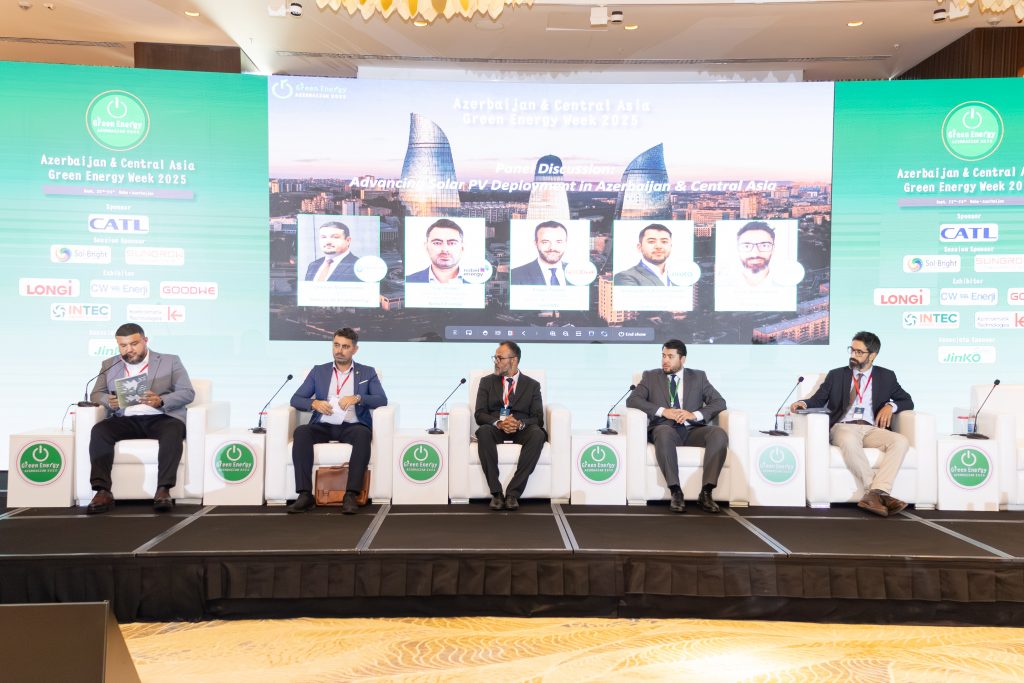
Notably, SOCAR Green presented its strategic role in driving green energy development in Azerbaijan, while companies like Masdar, TotalEnergies, MAIRE, and NOMAC shared insights on wind energy growth and international best practices in project development and asset management.
Building Regional Capacity and Green Skills
A dedicated session on “Green Skills in Central Asia” emphasized the importance of workforce development and technical training for electricians and engineers to support the expanding solar industry. The Bulan Institute for Peace Innovations and other educational institutions called for greater investment in human capital to ensure an inclusive and just energy transition.
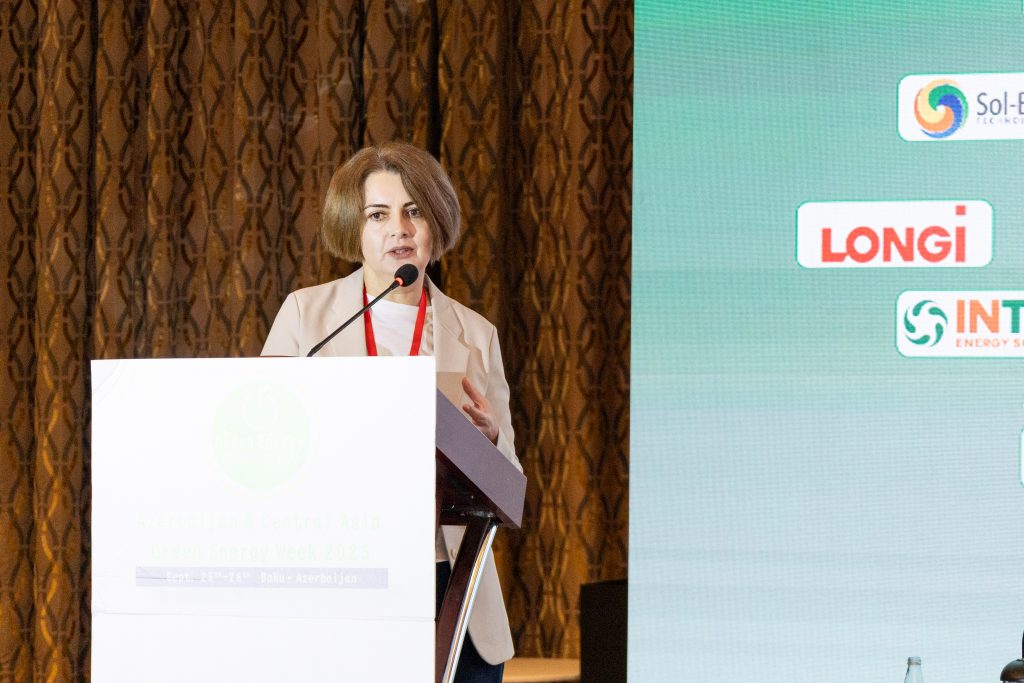
Hydrogen: A Strategic Pillar for the Future
The second day featured a deep dive into the hydrogen economy, with a keynote on hydrogen’s strategic role in Central Asia and the Caucasus. Panelists from the Green Hydrogen Alliance of Kazakhstan, GIZ, and Azerbaijan Renewable Energy Agency discussed policy roadmaps, infrastructure needs, and opportunities for cross-border hydrogen corridors.
A Call for Collaboration and Sustained Action
In closing remarks, organizers and participants reaffirmed the importance of regional solidarity, knowledge exchange, and long-term financing to scale clean energy projects. Ivan Novikov (Cranmore Partners), Meng Liu (IFC), and Sandro Museridze (EBRD) stressed the role of international financial institutions as lifecycle partners—from project conception to commercialization.
“This event has demonstrated that the energy transition in Central Asia is not only possible but already underway,” said one of the moderators. “What we’ve seen in Baku is a powerful alignment of vision, expertise, and ambition. The time for action is now.”
